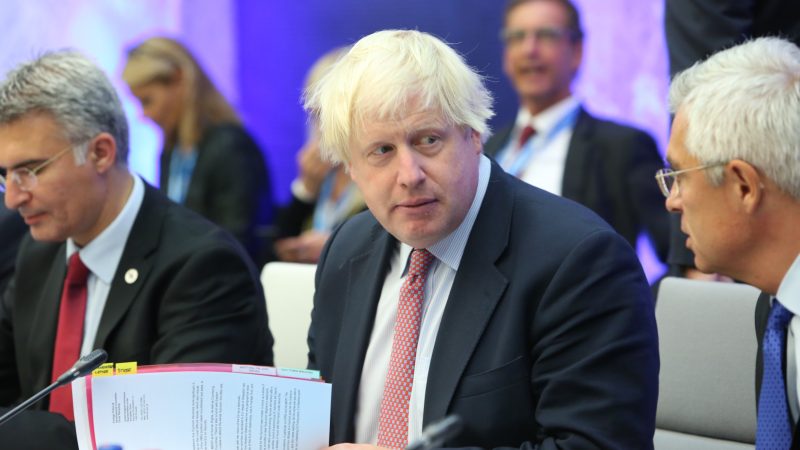Sunak has workers rights, environmental standards and financial regulation in his sights.

There was always a concern that outside the EU, the UK would accelerate the race-to-the-bottom by further lowering its standards on regulation, tax, workers’ rights and the environment, all to enable footloose capital to make bigger profits. We did not have to wait long for the rush.
There are calls for deregulation and the Chancellor has promised to unleash “Big Bang 2.0” for the City of London. The first big bang in unleashed in 1986 did not end happily.
The feather-duster regulation led to a tsunami of mis-selling financial products and the collapse of virtually every building society that converted to a bank. Banks rigged interest rates, exchange rates and indulged in frauds, culminating in the 2007-08 banking crash which ushered in never-ending austerity, and the economy is yet to recover from it.
The state provided over £1tn of financial support to bail out banks. Far from being a boon, the finance industry has been a curse. One study estimated that between 1995 and 2015, the finance industry cost the economy £4.5tn to the UK economy and eroded the living standards of millions of people.
Tax cuts, mainly for the rich and corporations, are being pushed onto the post-Brexit agenda, without any consideration of the costs. So what will people be expected to forego – healthcare, education, housing, security, libraries, public services, meals for hungry children? Some 42% of adults have annual income of less than £12,500 and therefore pay no income tax. They will not benefit from any cut in the rate of income tax.
Prime Minister Boris Johnson has said that “you can use tax systems and subsidies to drive investment”. This means that those not eligible for low tax and subsidies will inevitably subsidise the ones receiving the government’s largesse. The UK corporation tax rate has declined from 52% in 1982 to the current rate of 19%. This did not increase social welfare. Wages have been flat for more than decade. Some 14m people, including 4m children and 2m pensioners live below the poverty line and Covid would only have added to those numbers.
Low corporate tax rates have not led to economic rejuvenation. The UK investment in productive assets is around 17% of gross domestic product (GDP), the third lowest in major European countries. The UK investment in research and development, which provides stock for the future, has declined to around 1.7% of GDP compared to 2% in 1981. The trade barriers enacted by the EU/UK Trade and Cooperation Agreement are likely to make Foreign Direct Investment in the UK less attractive as many exporters will not have frictionless access to the EU market.
The government is planning to reduce worker’s rights. These include ending the 48-hour limit on the working week, which was part of the EU working time directive, tweaking rules about rest breaks at work and not including overtime pay when calculating some holiday pay entitlements. This will have a negative effect on safety at work, people’s mental health, family life and purchasing power.
The government’s claims of environmental standards and building a green economy are empty. Firstly, it has permitted the use of bee-killing neonicotinoid pesticides, banned in the EU. The government has reneged on its previous commitment without any consideration of the impact on soil, vegetation, insects and water, all essential for food production.
Secondly, to boost corporate profits, the government has ignored the EU ban on the export of mixed and contaminated plastic waste to non-OECD countries, i.e. poorer countries. The 2019 election manifesto of the Conservative Party said “We will ban the export of plastic waste to non-OECD countries”.
Yet in the first seven months of 2020, UK exported 64,786 tonnes of plastic waste to non-OECD countries. Many poorer countries have substandard waste management facilities which can expose workers to volatile organic compound emissions, pollute surface and ground waters and discharge highly toxic air emissions from the open or crude burning of unrecyclable material. The UK government has not conducted any study of the impact of the export of harmful waste or the development of less harmful alterative materials.
The government claims to apply ough controls on exports of plastic waste do not stand-up to scrutiny. Last year. Malaysia returned 42 shipping containers of illegally imported plastic waste to the UK. Sri Lanka returned 21 containers of hazardous waste, including plastic waste to the UK.
Good social infrastructure is the key to a thriving economy. This requires investment in education, healthcare, skills, science, technology, transport, energy efficiency and security. Yet the government shows little sign to appreciating that basic point. Major industries, such as telecommunications, biotechnology, information technology, shipping, engineering and many others flourished because of state investment as the private sector showed little appetite for risks. But that is not a government priority.
The rebuilding of a post-Covid economy requires imagination and advancement of human welfare, and not a return to failed policies of deregulation, tax cuts for the rich, lower worker and environmental standards.
Prem Sikka is an Emeritus Professor of Accounting at the University of Essex and a Labour member of the House of Lords
To reach hundreds of thousands of new readers we need to grow our donor base substantially.
That's why in 2024, we are seeking to generate 150 additional regular donors to support Left Foot Forward's work.
We still need another 117 people to donate to hit the target. You can help. Donate today.



